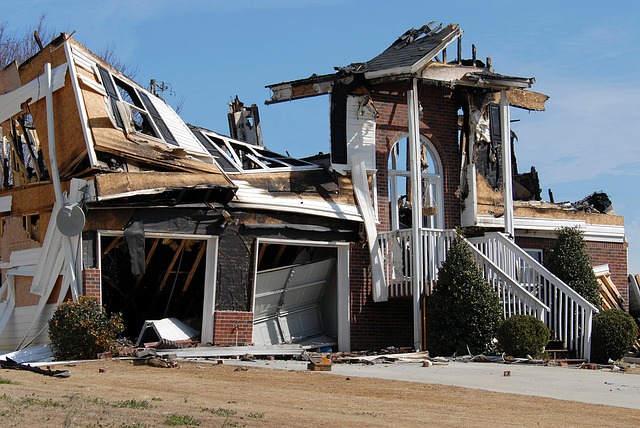Local and professional liability insurance is essential for businesses to protect against accidents, injuries, and property damage on their premises or due to service provision errors. It covers legal fees, medical expenses, and settlements, safeguarding against financial ruin from lawsuits or claims that can disrupt operations and even lead to bankruptcy. Tailored risk assessment, meticulous record-keeping, and choosing a reputable insurance provider are key to ensuring adequate coverage for unique business needs. Case studies highlight the critical role of liability insurance in protecting businesses from unexpected events and potential financial losses.
Understanding Local Liability Coverage: Protecting Your Business at Home

Local liability coverage plays a crucial role in protecting your business from potential risks and claims arising within your immediate community. This type of insurance is designed to safeguard against lawsuits and financial losses due to accidents, injuries, or property damage that may occur on local premises you operate from. Understanding this coverage is essential for any business owner as it provides a safety net against unpredictable events that could impact your operations and financial stability.
By having liability insurance tailored for local scenarios, businesses can ensure they are prepared for various scenarios. This includes incidents like customer slips and falls, product liability claims from nearby patrons, or even property damage caused by equipment malfunctions. Such coverage helps cover legal fees, medical expenses, and potential settlements, offering peace of mind and financial security in what could otherwise be stressful situations.
Professional Responsibility: Why Insurance is Essential for Service-Based Businesses

In the competitive landscape of service-based businesses, professional responsibility is paramount. As professionals, whether you’re a consultant, contractor, or advisor, your expertise and advice carry significant weight in the decisions and outcomes of your clients. This comes with a great deal of trust, and it’s essential to recognize that mistakes or omissions can lead to substantial financial losses or legal repercussions for both parties involved. Liability insurance acts as a shield, protecting against these potential risks by covering the costs associated with claims, including legal fees and damages.
Without proper liability insurance, businesses risk exposure to significant financial burdens. A single lawsuit or claim could drain resources, disrupt operations, and even lead to bankruptcy. For service-based enterprises, where the work is often specialized and contracts are tailored to individual clients, the potential for errors or misunderstandings increases. Liability coverage ensures that these businesses can weather any unforeseen legal storms, maintain their professional reputation, and continue providing quality services to their clientele.
The Scope of Coverage: What's Included in Local and Professional Policies?

Local and professional liability coverage policies are designed to protect businesses from potential risks and legal issues arising from their operations. The scope of these coverages encompasses a wide range of incidents, ensuring that businesses are shielded against financial losses due to claims of negligence or wrongful acts. In terms of what’s included, such policies generally cover medical expenses and damages for bodily injury or property damage caused by operations within a specific geographical area (local liability), as well as professional services rendered to clients (professional liability).
For local liability coverage, consider scenarios where a customer slips and falls on your premises or experiences an allergic reaction to a product you serve. Professional liability insurance, on the other hand, protects against claims of malpractice, negligence, or breach of contract in the provision of professional services. This could include legal fees and damages awarded in suits brought by clients alleging errors in advice, incomplete work, or contractual breaches. Both types of coverage are vital for ensuring business continuity and financial stability.
Risk Assessment: Identifying Potential Hazards and Liabilities

Risk assessment is a crucial step in understanding and managing potential hazards and liabilities, especially for businesses and professionals who require liability insurance coverage. It involves meticulously examining various aspects of an operation to identify risks that could lead to legal issues or financial losses. By identifying these risks early on, businesses can take proactive measures to mitigate them, ensuring the safety of their operations and employees while also safeguarding against potential lawsuits.
During a risk assessment, professionals should consider everyday activities, work environments, and even routine tasks that might present hidden dangers. Common areas of concern include workplace accidents, product defects, professional negligence, and compliance issues. For instance, a construction site may assess the risks associated with heavy machinery, safety protocols, and structural integrity, while a legal practice could focus on errors in advice or documentation. Effective risk management requires a comprehensive analysis to ensure adequate liability insurance coverage is in place.
Types of Professional Liability Claims and How to Defend Against Them

Professional liability claims, also known as malpractice suits, can arise from various situations. These include negligence in providing professional services, such as errors in legal advice, medical misdiagnoses, or faulty design plans. To defend against such claims, having comprehensive Liability Insurance is paramount. This coverage helps protect individuals and businesses by covering legal fees and damages awarded in lawsuits.
A robust defense strategy should also involve meticulous record-keeping, adherence to industry standards, regular staff training on best practices, and prompt response to client concerns or complaints. By maintaining detailed documentation of your processes and outcomes, you can demonstrate due diligence and mitigate potential liabilities.
Choosing the Right Insurance Provider: Tips for Evaluating Local Options

When selecting a liability insurance provider, especially for local businesses, it’s crucial to conduct a thorough evaluation. Start by researching companies that specialize in business liability coverage and have a solid reputation in your area. Check their financial strength and stability to ensure they can fulfill their obligations. Local chambers of commerce and business associations can be excellent resources, offering insights into trusted insurers and providing a platform for comparing rates and services.
Consider the specific needs of your business. Different industries may require tailored liability coverage. Review policy options, exclusions, and limitations carefully. Speak with potential providers to understand their underwriting process, claims handling procedures, and customer support availability. Opting for insurers with local branches or representatives can be beneficial, ensuring easy access to support when needed.
Case Studies: Real-World Examples of Local and Professional Liability Claims

In the dynamic landscape of business, Liability Insurance serves as a crucial shield, protecting enterprises from the financial repercussions of real-world mishaps. Case studies offer tangible examples of its importance, shedding light on scenarios where local and professional liability claims have significantly impacted businesses.
Consider a small café in a bustling city center. A customer slips on wet flooring and sustains an injury, leading to a lawsuit for premises liability. The café’s lack of proper warning signs and inadequate maintenance contributed to the incident. Thanks to their comprehensive Liability Insurance, they were able to cover medical expenses, legal fees, and damages awarded, ensuring business continuity despite this unfortunate event. Similarly, a consultant hired by a tech startup faced professional liability claims after providing faulty code that led to a data breach. The insurance policy covered the costs of settlement, credit monitoring services for affected clients, and legal defense, allowing the startup to learn from its mistake while minimizing reputational damage.
